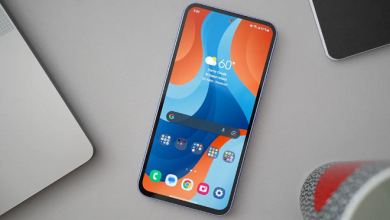The History of the Smartphone

The smartphone is one of those inventions that truly changed the world. Though we call it a phone, it is a much more apt description to say “mini-computer,” or something to that extent. Indeed, smartphones do function as mini-computers. Not only do they allow us to make calls, but they can access the internet, run games, open popular apps, and much more. We’ve certainly come a long way since Alexander Graham Bell. What we want to know is “how?” What is the history that led to the creation of the smartphone?
The Invention of the Telephone
We mentioned Alexander Graham Bell, because he is an important figure in the creation of the smartphone. While he was born a century before the smartphone was even a concept, it is difficult to say that without him we would have the smartphone.
In the 1870s, the Scottish scientist and engineer was working on a harmonic telegraph. Through complete accident, with his partner, Bell discovered that the telegraph could carry overtones. He put that discovery to practice, and pretty soon, he created the acoustic telegraph, which later evolved into the phone.
By the mid-20th century, the phone had become a commonplace item in most households. Telecommunications had drastically improved, and you could even contact relatives a continent away, though admittedly, the price would be high.
Throughout the 20th century, people were happy with their home telephones. However, around the 1970s talk of a handheld mobile device began circulating. By the 1990s, mobile phones had already become a reality.
Mobile Phones
In 1994, the IBM Simon Personal Communicator hit the shelves. Designed by International Business Machines, the IBM Simon is what many consider to be the first smartphone, though it was never officially called that, as the device pre-dated the term.
The IBM Simon featured a touch screen, a feature that is now part-and-parcel for smartphones. At the time, however, it was incredibly innovative. Naturally, the device also included telephony features, and even a connection to the internet.
Certainly, users of the IBM Simon could not do all of the things we take for granted today. It was impossible for the device to run web-based games, like poker or slots, for example. Today, you can learn everything you need to know about mobile casino sites, and play the games using nothing but a smartphone.
The IBM Simon was incredibly successful, selling 50,000 units in the first year alone. It seemed that people were ready for the future of mobile telephony. Luckily, it was the turn of the century, and the 21st century would bring quite the bit of innovation.
BlackBerry
In 1999 BlackBerry Limited, a Canadian company, released the first ever BlackBerry smartphone. Utilizing the latest in computer science and engineering, the BlackBerry could do all of the things the IBM Simon could, but better. On top of that, it included web browsing, internet faxing, and more.
BlackBerry products were a massive success, especially considering the pricing. Once again, however, it proved that the world was ready for the next step forward. And the company itself took that step, when in 2002 they released their next version of the BlackBerry phone.
A superior model in every way, the new device improved upon many of the features and added in some new ones. Users could now email, fax, browse the web at a much more reasonable rate, etc. It seemed BlackBerry Limited were going to be the reigning champs of the smartphone world. Until 2007, when the iPhone revolution happened.
Apple and the iPhone
What can we say about the iPhone that hasn’t been said already? By far, one of the best and most respected smartphones on the market, the iPhone changed the whole industry. Today, we treat smartphones as computers, we look to maximize space, we use them to find information, and some people even use smartphones to work. For all of that, we have Apple to thank.
In 2007, Apple released the first iPhone. With a slick design, incredible features, a touchscreen like none that came before it, and the iOS operating system, the iPhone quickly became one of the most successful mobile devices in the world. The engineering skills of Steve Wozniak and the marketeering of Steve Jobs came together to make Apple one of the most successful companies in the world.
Today, the iPhone is one of the two main competitors in the world of mobile devices. The debate rages eternal as to whether the iPhone deserves the credit it gets. Whatever side of the debate you may fall on; one thing is true; the iPhone set the stage for the modern smartphone as we know it.
The Rise of Android
Just a short year after the release of the iPhone, Google threw their own hat in the mix. The Android operating system was an open-source alternative to Apple’s iOS. Naturally, with Google being one of the biggest companies in the world, their Android system quickly gained a fan following and incredible support.
Today, Android smartphones remain Apple’s number 1 competitor. In many ways, they far outperform iPhones. Regardless, there are passionate fans on both sides, who swear by their preferred operating system. The truth is, whichever side of the coin you fall on; both of these companies have designed some of the best smartphone devices in the world.
The Future of Smartphones
Who can say what the future holds? With the advent of 5G, the future of smartphones seems to be a bright one. We can expect faster data processing, improved network and connectivity, and reduced connection issues.
Technology marches ever forward, which means that we should expect better devices regardless. It would not be surprising if smartphones managed to fully match computers in every way. Already, we are seeing better and better gaming smartphones, and mobile games that can match some of the AAA releases.
Final Say
The smartphone has had a fascinating history. From the early telephone of Graham Bell to the rotary phone, and the flip phone, telephony has come a long way. However, the future of these devices is certainly something to look forward to.




